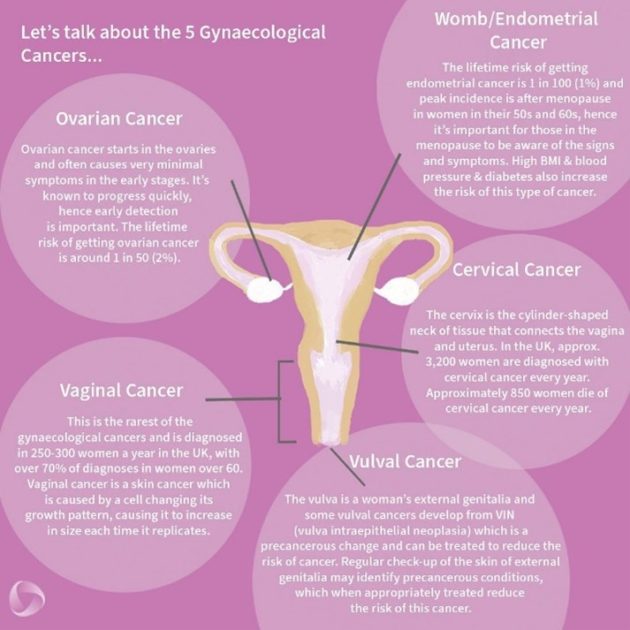
HPV & Cervical Screening: FAQs answered by the experts
1. I feel absolutely fine – do I really need a smear test?
Yes, 100%. Cervical cancer can develop without any obvious symptoms, which is why cervical screening (also called a smear test) is so important. It can detect changes before they become anything serious. A quick test today could genuinely save your life.
The cervix is the lower part of your womb (uterus), sitting at the top of your vagina. It acts like a gateway between the two.
While cervical cancer is more common in women aged 30-45, it can affect people in their 20s too. That’s why starting screening is crucial – even if you feel perfectly well.
2. At what age should I start going for smear tests?
In the NHS, you’ll be invited for your first HPV screening at age 25. From there, it’s now every 5 years, up to 64 years, but you might be called back sooner if you get a positive HPV result.
At London Gynaecology, we often recommend more frequent screening to be thorough, especially if your medical history or previous results suggest it’s needed. Your care plan is always tailored to you.
3. What is HPV and why does it matter?
HPV (Human Papillomavirus) is a super common virus – around 8 in 10 people will have it at some point. It’s picked up through skin-to-skin contact during sex. You don’t need full penetrative sex to get it and it can be picked up from a partner even if they have no symptoms. Most types clear up on their own without any issues, but some high-risk types can lead to abnormal cells on the cervix, which – if left untreated – can develop into cervical cancer. Over 99% of cervical cancers are caused by HPV.
That’s why your initial screening test checks for HPV. Catching it early means we can monitor or treat any changes long before they become anything serious. If HPV is present, you will then need a smear test to check the cervical cells.
4. What actually happens during a smear test?
The whole thing usually takes just a few minutes. Here’s what to expect:
- You’ll lie on an exam bed, usually with a paper sheet over your lower half
- A nurse or doctor will gently insert a small speculum to see your cervix
- They’ll use a soft brush to collect a sample – this might feel odd, but it’s quick and usually not painful
That’s it! You can go straight back to your day.
We’ll always explain what’s happening and check in with you throughout. If you’re feeling nervous, just let us know – we’re here to help you feel at ease.
5. What if I am nervous or embarrassed?
Totally understandable – and you’re not alone. We’re here to help you feel safe and supported. We have:
- Female clinicians available
- Calm, private, and respectful environments
- Trauma-informed care for anyone who’s had previous difficult experiences
You’re always in control – and we’ll go at your pace.
Looking for ways to make your smear more comfortable? Check out our in-house tips here. Cervical Screening Awareness and Recommendations: How To Make Your Smear Test More Comfortable – London Gynaecology
6. What if my smear test shows something abnormal?
First: try not to panic. Most abnormal results don’t mean cancer – but they do mean we’ll want to keep an eye on things.
You might be referred for a colposcopy with one of our Consultants – this is similar to a smear test but just a closer look at your cervix using a special microscope. It’s done in our clinic, takes around 15–20 minutes, and helps us understand what’s going on.
If needed, we’ll talk you through treatment and follow-up options.
We’re here every step of the way.
7. Do I already have symptoms of cervical cancer?
In the early stages, there often aren’t any. But it’s important to look out for:
- Bleeding between periods or after sex
- Pain during or after sex
- Unusual vaginal discharge
- Persistent pelvic or lower back pain
If you notice any of these, don’t wait – get it checked, even if your last smear was normal.
8. What are the new home HPV kits?
They’re self-sampling kits offered by the NHS as part of a trial programme. Instead of going to a clinic, you use a small swab to take a sample from your vagina at home, then post it back for testing. This only tests for HPV, and doesn’t test for cellular changes. If your test is positive, you will then be called for a smear test.
At London Gynaecology, we recommend having a full HPV and smear check for a complete and thorough check.
9. What cervical health services do you offer?
At London Gynaecology, we offer:
✔️ Cervical screenings (smear tests)
✔️ HPV testing (with detailed results of high-risk and low-risk types)
✔️ Colposcopy and follow-up treatment (if needed)
✔️ Expert care from GPs and gynaecologists, all under one roof
10. How do I book an appointment?
- Call us on 0207 1011 700
- Book online
- Or drop in – we’d be happy to help!
Sources & References
- HPV prevalence: “Epidemiology and Natural History of Human Papillomavirus Infections in the Female Genital Tract” – PubMed (PMID: 24350604)
- Most HPV infections clear on their own: “Human papillomavirus infections: epidemiology, pathogenesis, and prevention” – PubMed (PMID: 15142639)
- Cervical cancer age range: Cervical cancer incidence by age – Cancer Research UK
- Cervical screening programme details (UK): NHS Cervical Screening Programme – NHS England
- Colposcopy guidance: NICE Guidelines on Colposcopy and Management of Abnormal Cervical Cytology – NICE UK
- Symptoms of cervical cancer: Cervical Cancer Symptoms – Cancer Research UK



